Namibia
Namibia’s Vice President Netumbo Nandi-Ndaitwah could become the country’s first female president if she wins the presidential election Wednesday.
At least 1.4 million people, or about half of the population, have registered to vote in the elections, with 15 political parties running for president and seats in the National Assembly.
"I'm proud to have the mentality of liberation because having liberated the people of Namibia politically, I'm now ready to liberate them economically”, Nandi-Ndaitwah said at a rally for supporters of her party, the South West Africa People's Organisation.
Meanwhile, leader of the Popular Democratic Movement McHenry Venaani called on voters to turn out at the polls, urging them to “to rise up, stand in the long queues and cast their vote for the future we all deserve.”
Results from special early polls held for Namibia‘s foreign missions, seamen and security services announced by the Electoral Commission of Namibia this month indicate Nandi-Ndaitwah and her party, the South West Africa People’s Organization, or SWAPO, are in the lead.
SWAPO has governed the southwest African country since its independence from South Africa’s apartheid minority government in 1990.
But in 2019, the party lost its two-thirds majority in the National Assembly for the first time since 1994. Its dismal electoral performance has been widely attributed to allegations of corruption and money laundering in the Namibian fishing industry.
Two cabinet ministers were arrested, and businessmen connected to the ministers were also convicted and imprisoned.
If she becomes president, Nandi-Ndaitwah would follow in the footsteps of Liberia’s Ellen Johnson Sirleaf, who made history when she became the continent’s first elected female president in 2005, as well as Malawi’s Joyce Banda and Samba Pranza of the Central African Republic.
Elections in southern Africa this year have delivered ground-breaking changes to the region's political landscape, with the ANC in South Africa losing its 30-year parliamentary majority and Botswana's Democratic Party getting unseated after 58 years in power.
In Mauritius, considered one of the most stable democracies in Africa, the opposition won recent elections by a landslide.





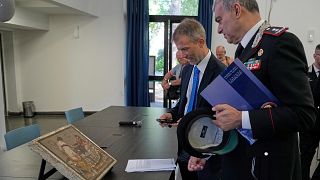
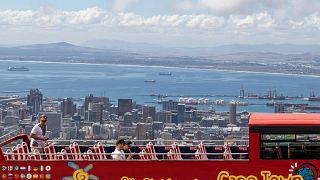
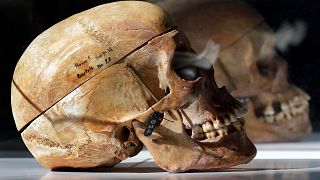
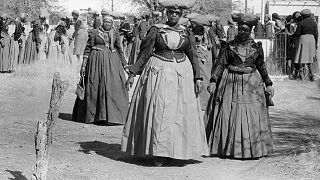



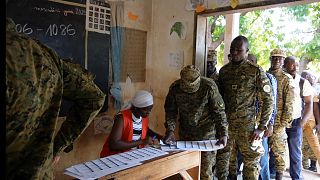
01:52
Togo’s security forces cast early votes ahead of high-stakes municipal elections
01:54
"Great economic potential in Africa": five African leaders have lunch with Trump
Go to video
Togo suspends French state-owned broadcasters RFI and France 24
Go to video
Protesters gather in Ivory Coast, demand Thiam's return on electoral list
02:13
Cameroon: Police, opposition supporters clash as election looms
01:25
Burundi awaits results of local and parliamentary elections